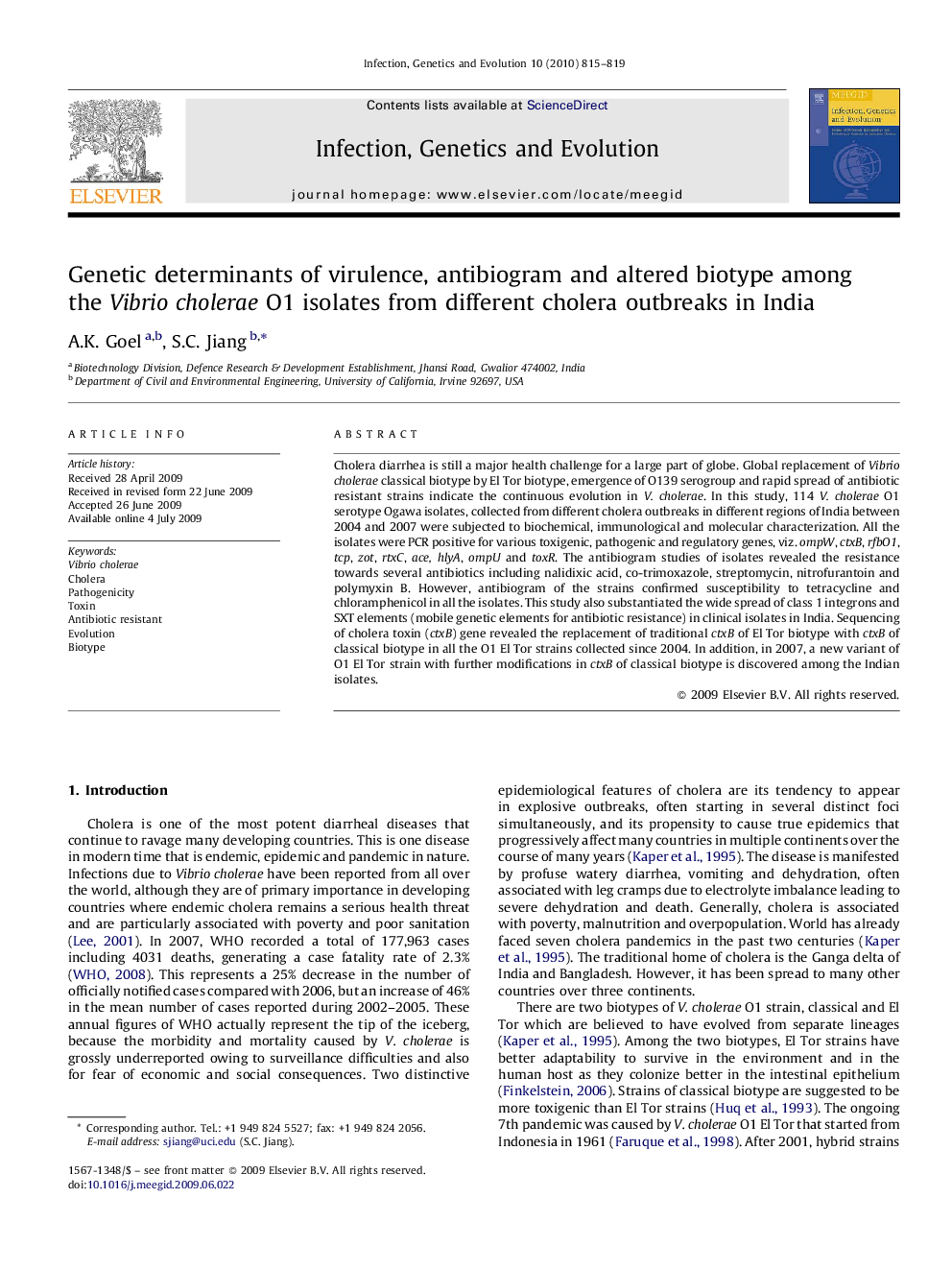| Article ID | Journal | Published Year | Pages | File Type |
|---|---|---|---|---|
| 2823181 | Infection, Genetics and Evolution | 2010 | 5 Pages |
Cholera diarrhea is still a major health challenge for a large part of globe. Global replacement of Vibrio cholerae classical biotype by El Tor biotype, emergence of O139 serogroup and rapid spread of antibiotic resistant strains indicate the continuous evolution in V. cholerae. In this study, 114 V. cholerae O1 serotype Ogawa isolates, collected from different cholera outbreaks in different regions of India between 2004 and 2007 were subjected to biochemical, immunological and molecular characterization. All the isolates were PCR positive for various toxigenic, pathogenic and regulatory genes, viz. ompW, ctxB, rfbO1, tcp, zot, rtxC, ace, hlyA, ompU and toxR. The antibiogram studies of isolates revealed the resistance towards several antibiotics including nalidixic acid, co-trimoxazole, streptomycin, nitrofurantoin and polymyxin B. However, antibiogram of the strains confirmed susceptibility to tetracycline and chloramphenicol in all the isolates. This study also substantiated the wide spread of class 1 integrons and SXT elements (mobile genetic elements for antibiotic resistance) in clinical isolates in India. Sequencing of cholera toxin (ctxB) gene revealed the replacement of traditional ctxB of El Tor biotype with ctxB of classical biotype in all the O1 El Tor strains collected since 2004. In addition, in 2007, a new variant of O1 El Tor strain with further modifications in ctxB of classical biotype is discovered among the Indian isolates.
